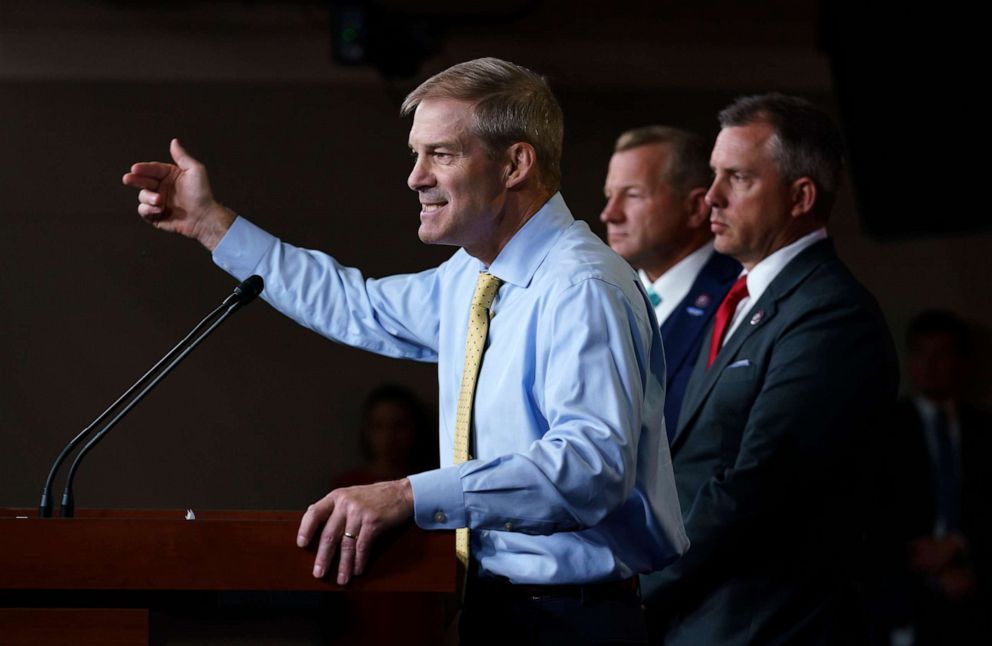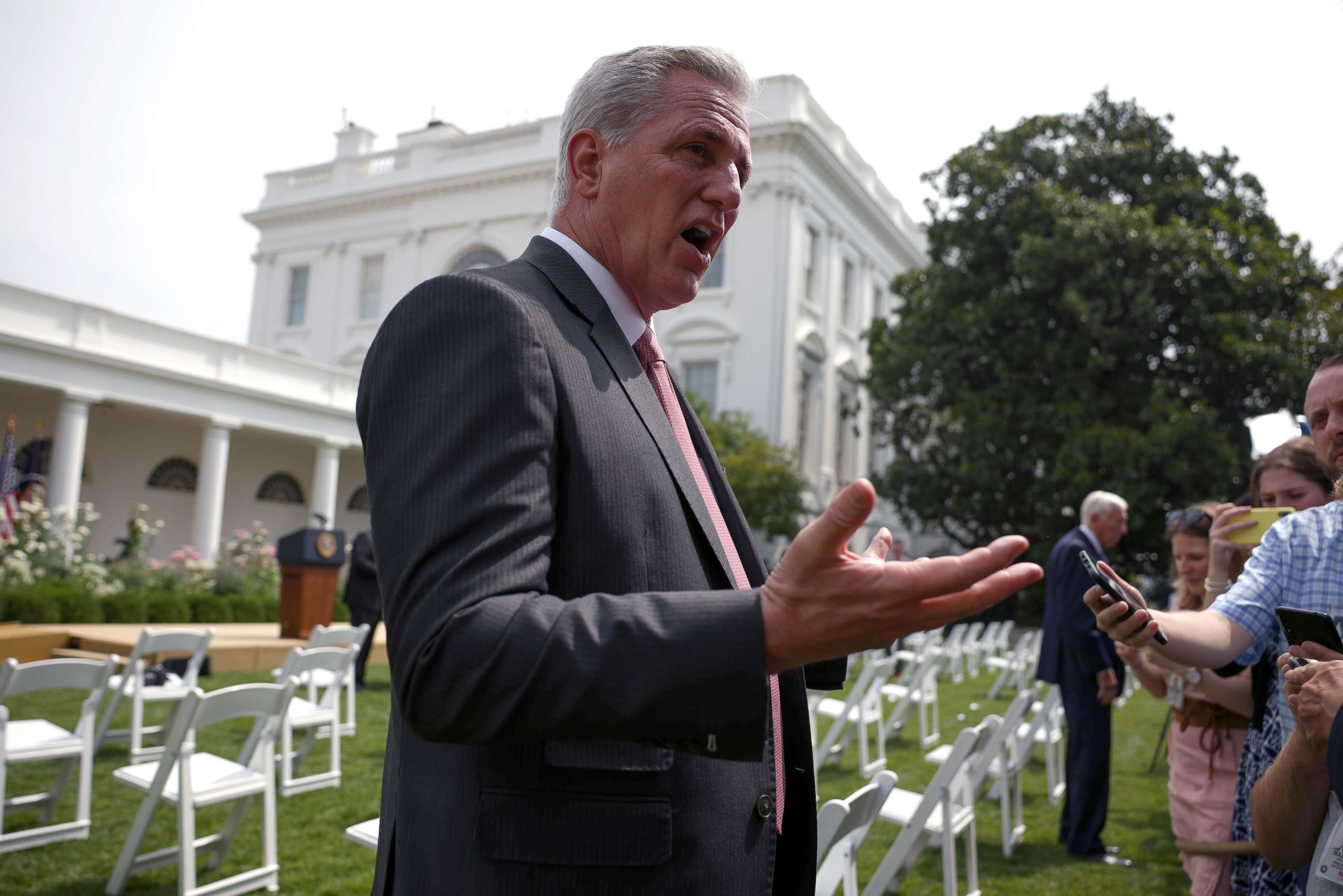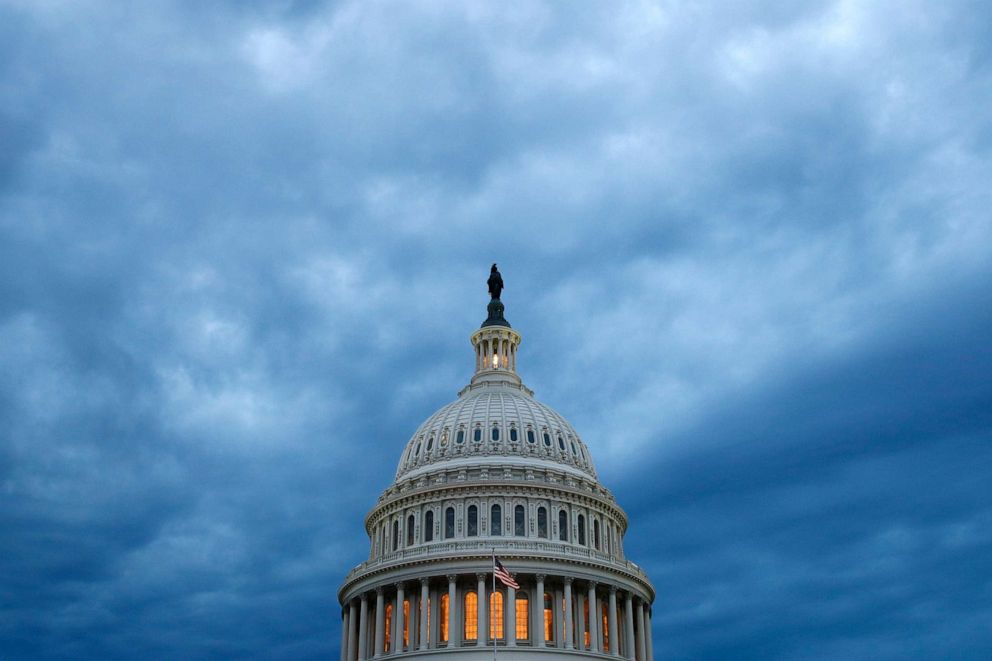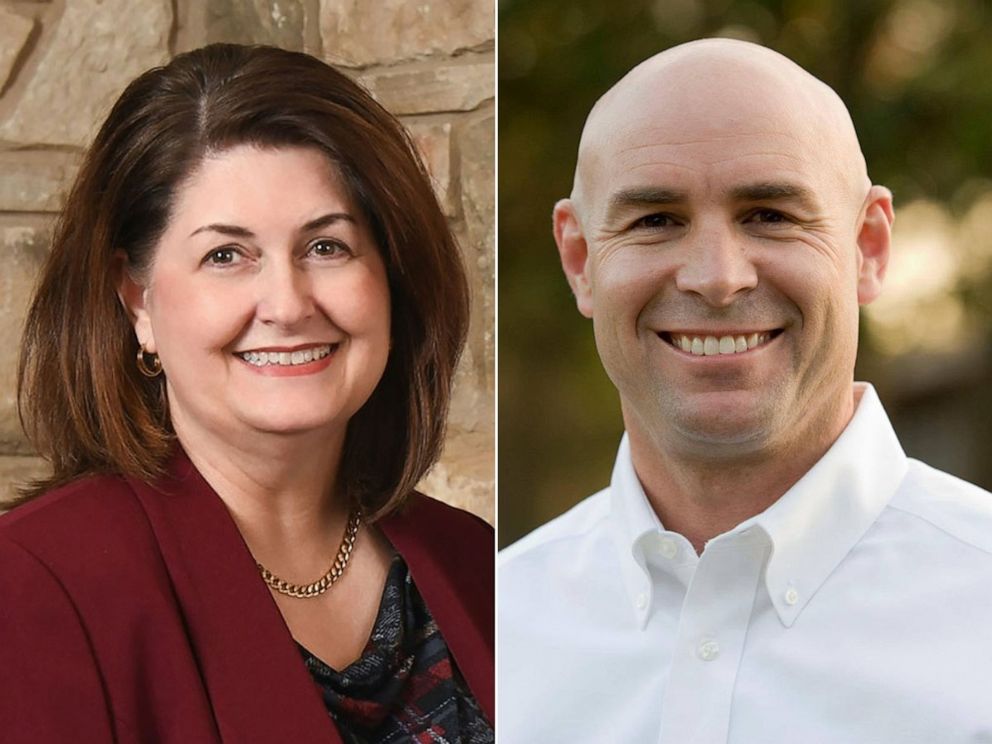Trump loyalists missing but not forgotten as Jan. 6 hearings begin: The Note
What happens in the hearing will be remembered longer than who sat at the front.
The TAKE with Rick Klein
It will be a day of uncharacteristic quiet for pro-Trump forces on Tuesday, when the House Select Committee on the January 6th Insurrection holds its first hearing without any committee members selected by GOP leadership.
But the absence of Rep. Jim Jordan and others picked by House Minority Leader Kevin McCarthy won't leave them to the side entirely -- not even counting their attempts to crash the news cycle.

Jordan and McCarthy -- both of whom have said they spoke with former President Donald Trump as events unfolded Jan. 6 -- are two potential witnesses in an investigation that could extend deep into the former president's inner circle of formal and informal advisers.
Tuesday's hearing will feature four officers who sought to protect the Capitol from the attack. Video evidence and testimony offered at the start are designed to rebut attempts to "whitewash" what happened that day, Rep. Adam Schiff, a member of the select committee, told reporters in previewing the day.
Schiff said no decisions have been made on additional witnesses, but made clear that the committee will follow facts to determine "what led up to that insurrection and what happened thereafter."
He and the committee's chairman, Rep. Bennie Thompson, have pointedly not ruled out subpoenas of relevant witnesses -- up to and including members of Congress, the Trump administration and possibly even the former president and vice president themselves.
"We're not gonna call people to call people, but if there are questions raised about conduct on that day -- or before or after it -- pertinent to the report, then no one should be off limits," Schiff told ABC News congressional correspondent Rachel Scott.
The bipartisan Senate report on Jan. 6 sidestepped questions of culpability of Trump or other political leaders, as one of the costs of keeping it bipartisan. The House committee plans to go there, with the eight Democrats and two Republicans chosen by House Speaker Nancy Pelosi holding wide discretion about how to shape their inquiry.

McCarthy has dismissed the exercise as partisan and is dismissing his conference members on the committee as "Pelosi Republicans."
But the questions posed and the answers received by this committee will likely contribute to the most substantial historical record of the events surrounding a horrific day. What happens in the hearing rooms will be remembered longer than which lawmakers sat at the front.
The RUNDOWN with Averi Harper
Spending bills that are working their way through the House of Representatives could do away with long-established restrictions on the federal funding of abortion if passed.

It could end the Hyde Amendment, which prohibits use of federal money for abortions and blocks Medicaid recipients from abortion coverage. The potential impact goes beyond U.S. borders, the bills could also end the Helms Amendment which bars federal assistance to foreign countries for abortions.
The push on the federal level comes as Republican-led state legislatures have made efforts to restrict access to abortion care. Alabama officials urged the Supreme Court to overturn the landmark Roe v. Wade decision on Thursday. According to the Guttmacher Institute, a reproductive rights advocacy group, 90 abortion restrictions have been enacted in states across the country.
"Amid an onslaught of state bans and restrictions on abortion access, excluding these discriminatory abortion coverage bans like the Hyde Amendment in the appropriation bills, is a part of a historic achievement for health equity,' said Alexis McGill Johnson president and CEO of Planned Parenthood Federation of America in a statement to ABC News.
The move is in line with President Joe Biden's proposed budget which also excluded these provisions. While it's unclear if the measures can pass the House, a vote could take place as early as this week.
The TIP with Alisa Wiersema
Nearly three months after the crowded race in Texas' 6th Congressional District advanced into a runoff between two Republicans -- Susan Wright and state Rep. Jake Ellzey -- the major theme of Tuesday's contest remains the same: will Trump's influence translate into victory?
Trump has gone all-in on his endorsement of Wright in the final hours, but in doing so, the former president is also opening the door to a risky gamble now that Ellzey has proven to be a notable fundraiser and campaigner. Expected low-voter turnout further adds to the uncertainty of who comes out on top.

According to Professor Cal Jillson of Southern Methodist University, who specializes in Texas politics, Trump may have pegged his endorsement to Wright early on because she seemed best positioned to win given that she is running to replace her late husband.
"Oftentimes, (Trump) will pick the candidate who he believes is going to prevail, to up his batting average, and that's what I think happened in this race -- because if you look at Susan Wright and Jake Ellzey, there's not much to pick between," Jillson said, referring to the fact that either Republican's win would further narrow the House Democrats' majority.
THE PLAYLIST
ABC News' "Start Here" podcast. Tuesday morning's episode features ABC News Senior National Correspondent Terry Moran, who previews the first House Select Committee hearing on the Jan. 6 riot. ABC News' Anne Flaherty explains why state and local governments are beginning to mandate vaccinations for health care workers and government employees. And tobacco industry journalist Jacob Grier tells us about Phillip Morris' plan to phase out cigarettes in the U.K. within the next decade. http://apple.co/2HPocUL
FiveThirtyEight's Politics Podcast. Almost a year after the 2020 Democratic National Convention, the FiveThirtyEight Politics podcast crew looks back at the record number of Democrats who ran for president in 2020 and assesses where they are now. The team asks whether all the candidates are in a better position now than they were before they ran. They also review a new report from the American Association of Public Opinion Research on why election polls had a historically large error in 2020. https://53eig.ht/3eVcl5J
WHAT YOU NEED TO KNOW TODAY
Download the ABC News app and select "The Note" as an item of interest to receive the day's sharpest political analysis.
The Note is a daily ABC News feature that highlights the key political moments of the day ahead. Please check back tomorrow for the latest.




